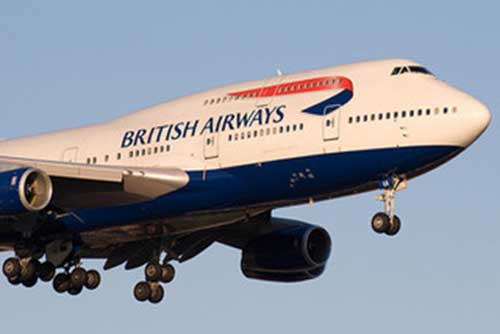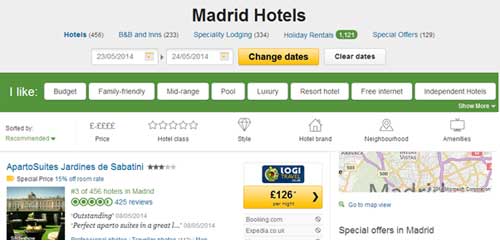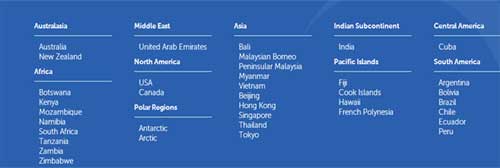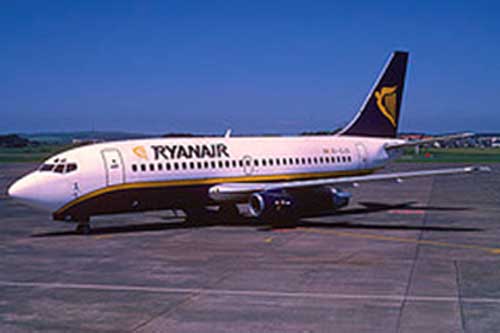Travel eCommerce Websites: Are You Ready To Sell Online?
When was the last time you arranged a holiday at your local travel agent? ‘Probably a very long time ago’. My next question is why? The simple answer to that is ‘because I book all my holidays online’.

With so many people now booking their holidays online it is vital that businesses with travel websites meet their visitors' requirements in order to convert. With this in mind let’s look at some statistics to highlight the importance of websites performing well in the online travel industry.
Online UK Holiday Statistics
In 2013 it was estimated that collectively British people would spent an average of £40bn on holidays. Considering that in 2012 research completed by ABTA The Travel Association 49% of people bought their holidays online. This shows there is a huge market for online travel businesses to exploit and it’s only going to increase as technology improves.
Here are the devices that people currently have been using to buy a holiday online over the past 2 years:
| Device | 2013 | 2012 |
|---|---|---|
| Tablet | 9% | 10% |
| Mobile | 11% | 14% |
| PC/Laptop | 96% | 89% |
*source: Abta
As we can see from the above data the majority of people are still using their laptop or PC as the main device to buy their holiday online. However as mobile and tablet devices advance it will be easier for people to use the web. The improvement in user experience may lead to more people using these devices to book online holidays in the future.
With so many people looking to buy a holiday online it is also important for online businesses to research where we Brits love to spend our holidays abroad some of our top 10 destinations are the following:
- Spain
- Cyprus
- Turkey
- Greece
- Egypt
- America
- Italy
- Caribbean
- Malta
- Dubai

These statistics provide great news for online travel websites as it clearly shows that more people are beginning to purchase their holiday online. There is one problem, in a hugely competitive market how are online businesses going to give themselves a competitive advantage? In the next part of my post we will go through what you have to do for your travel website to perform well online.
User Experience
User Experience is key in order for your travel websites to perform well online and from personal experience I believe less is most definitely more when it comes to travel websites. From a visitor’s perspective this should be a fun experience, they are planning a holiday after all. Therefore, if your site is easy to navigate and can provide the information about different destinations you offer in a simple but useful manner then it is far more likely that you will convert people who visit your website.
Search Functionality
As travel websites can have thousands of destinations available to their visitors, having a user friendly search functionality is crucial for them to be successful online. There is nothing worse when going on to a travel website knowing what I want but then not being able to find it because the search functionality does not work. A good example of great search functionality is TripAdvisor as shown below:

As you can see it is really simple to get started, all you have to do is type in the city or hotel name and dates that you are interested in going on and then press ‘Find Hotels’. This gets you to the ‘Madrid Hotels’ page:

From here you can choose different aspects of your hotel that you require from your stay such as whether you want a pool, luxury, family friendly etc. and the search function will filter your results accordingly making it easy to decide on the perfect hotel for you.
The example above shows why good search functionality is so important for a travel website to convert visitors. Because if a visitor can find the hotel or destination that they want easily then it is far more likely they will end up converting rather than them searching on competitor websites.
Optimising Destination Landing Pages

Furthermore, in order to be found in search results for the destinations that your website provides then it is important for you to optimise each landing page for the relevant keywords. A good example of this is shown below:
Having a site structure such as this allows this travel website to optimise each landing page individually for their target keywords. This means that if someone is searching for the term ‘holidays in brazil’ or ‘flights to brazil’ then there is a chance for the individual page to rank in search results if the content and Meta Data is optimised for these keywords.
This means the visitor is driven to a page on the website that meets their search query, therefore, the user is likely to find the content more relevant and this will mean they are more likely to book a flight, hotel or holiday on your website.
Booking Forms
This is the last step of a customer’s user journey on your website before booking a holiday. You would think at this stage the visitor to your website is ready to buy and will just fill out the booking form. Wrong. The booking form on a travel website is one of the most likely places a visitor will leave the site if they find it too complicated or are bombarded with loads of different add-ons which they don’t need.
In order to ensure that you convert your customers and send them away from your site looking forward to their holiday - keep the contact form as simple as possible. Let the customer decide if they want to opt in for any additional add-ons rather than forcing additional services in their face which could deter them from completing the booking.
These are some ways to get your travel website well optimised and will assist you to ranking well in Google and converting your visitors when they reach your website.
So now we know how to do it, here is an example of how not to do it…
Ryanair
Ryanair have been in the news for various reasons since its foundation in 1985, cheap flights, criticism for customer service, charging for on board services to name a few however now they can add a new reason for making headlines. NOT implementing 301 re-directs when launching their new website. This was a complete migration failure.
The result of this meant that one of the world’s leading airlines dropped completely out of Google’s top 100 search results for hundreds of search queries such as ‘flights to Spain’ which gets 9,900 average monthly searches and ‘flights to Cyprus’ which gets 14,800 average monthly searches. At a time of year when people are planning to book their holidays, not ranking in search results would have had a catastrophic impact on revenue.

Since the new website went live it has become easier for Ryanair customers to complete a booking, and Michael O’ Leary has stated the loss in revenue is sustainable. Ryanair have missed out massively in increasing their profit margins this summer without implementing 301 re-directs properly. If only they had paid as much attention to their digital marketing strategy as they have on cutting costs then they probably wouldn’t be in this situation…
One Last Thing
As we have seen from the example above not being vigilant in implementing digital marketing tactics can have major implications on the performance of your website online. Ryanair are a large enough company to be able to temporarily deal with a slump in income, however, for smaller travel companies a mistake like this could have a disastrous effect on revenue.
In an industry that’s future is going to be predominately online it will become more important for travel companies to invest more into their website in order for them to convert customers. Some of the ways which webmasters can do this is by implementing the recommendations above.
If you need more information or any help regarding this topic, please don’t hesitate to get in touch with us here at ThoughtShift on 0203 929 2037. As an experienced travel SEO & PPC agency, we’re well placed to ensure your travel business achieves relentless, yet sustainable growth. Alternatively, why not read our Manor Cottages case study to see what happens when travel companies get integrated digital marketing right.
Follow my contributions to the blog to find out more about Online Travel, B2B and SEO Strategy or sign up to the ThoughtShift Guest List, our monthly email, to keep up-to-date on all our blogposts, guides and events.
